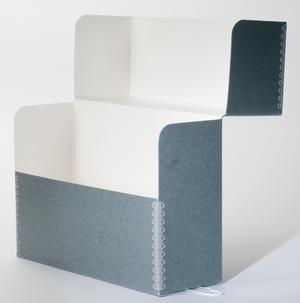- Contact Us
- Emergency Information
- Facility Rental
- Jobs
- Site Map
- Site Policies
- Web Accessibility
- Web Privacy
- © Harry Ransom Center 2025

SIGNATURES
Identified individuals are represented by a biographical sketch, a list of connections to other signatures, and, in most cases, an artifact from the Ransom Centers collections. Help us identify more signatures by submitting your suggested identification.
X
X
THE DOOR
 Location on door: front, panel 1
Location on door: front, panel 1
JOHN V. A. WEAVER
John V. A. Weaver (1893-1938) grew up in Charlotte, North Carolina, and graduated from Hamilton College in Clinton, New York. He attended Harvard from 1914-15 (where he was a classmate of Eugene O'Neill's) until he moved to Chicago to be the literary editor of the Chicago Daily News. During World War I, Weaver served as an army lieutenant, then resumed his career as a critic at the Brooklyn Daily Eagle, where he was the literary editor from 1920-24. Weaver's first book of poetry, In American, was published in 1921 and was groundbreaking for its startlingly idiomatic treatment of the English language. During the 1920s he published four more books of poetry, two novels, and a play. In 1924 he married the stage and screen actress Peggy Wood, a member of the Algonquin Round Table, and in 1928 the couple moved to Hollywood, where Weaver became a successful screenwriter. His screenplays include The Crowd, which was directed by King Vidor in 1928, and the 1938 David O. Selznick adaptation of Mark Twain's The Adventures of Tom Sawyer.

A letter from John V. A. Weaver to Edward Cummings and enclosed letter to E. E. Cummings, 26 August 1921
In this 1921 letter to E. E. Cummings, which was forwarded to Cummings via Horace B. Liveright and Cummings's father, Weaver stands by prior claims he had made that Cummings's poetry is sub-par, but lavishes unqualified praise upon Cummings's autobiographical novel The Enormous Room, which Boni & Liveright would publish in 1922. Weaver later wrote a positive review of The Enormous Room for his column in the Brooklyn Daily Eagle.

